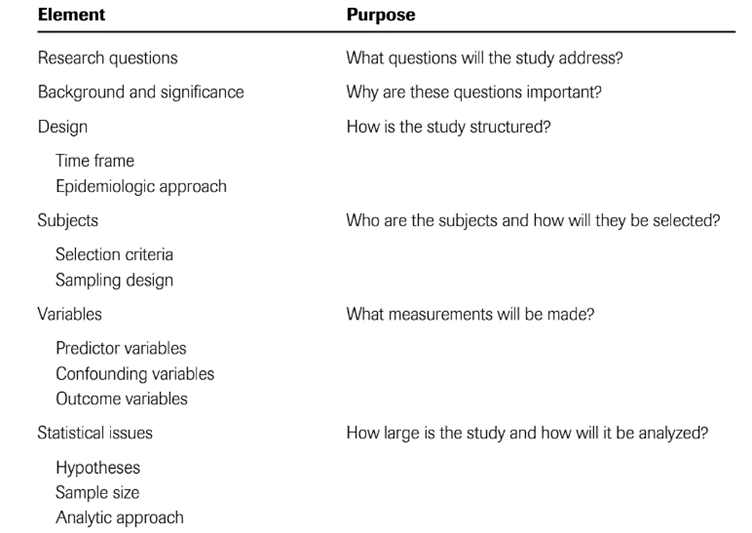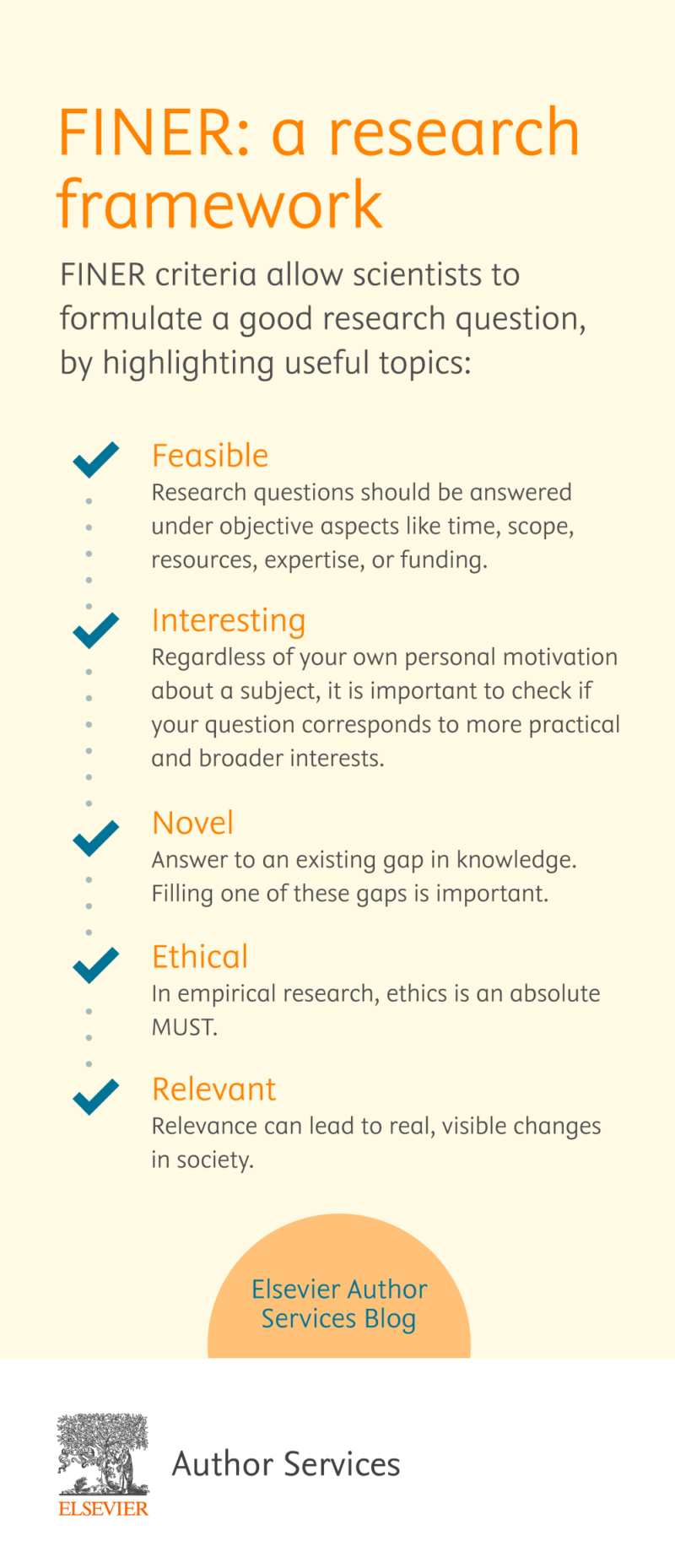Table of Contents
Within the complex field of scientific research, the development of a well-structured and feasible research question serves as the fundamental basis of a meaningful investigation. The process of transforming a clinical problem into a structured inquiry is a thorough one, as it sets the direction for the entire research effort. The FINER criteria, which is an acronym representing the fundamental characteristics of a research issue, remains a valuable tool for researchers, particularly those who are in the early stages of their professional journey.
Setting the Stage: The Role of the Research Protocol
Before learning the FINER approach, it’s important to comprehend the study protocol’s structure. This documented plan is essential for funding applications and science. It helps researchers organize their study to be logical, focused, and efficient. The protocol describes the study’s goals, methodology, statistics, and organization, guiding the research from start to finish.

“A good research question should pass the ‘‘So what?’’ test. Getting the answer should contribute usefully to our state of knowledge.” (Hulley et al. 22)
A Closer Look at the FINER Criteria
FINER is an acronym that stands for Feasible, Interesting, Novel, Ethical, and Relevant. These five attributes are essential in ensuring that a research question is not only well-constructed but is also capable of driving a study that’s both meaningful and impactful.
1. Feasible:
Feasibility is all about the practicality of a study. It’s about asking whether the study can be done given the available resources, time, and technology. It’s crucial to consider if the sample size is attainable, if the variables can be measured effectively, and if there are enough resources, including funding and expertise, to carry the study through to completion.
Essential considerations are as follows:
- Does the available timeframe allow for the execution of the research?
- Does the necessary technology and knowledge exist to facilitate the execution of my study?
- Can I pay for it?
- Will my study yield the desired level of impact and significance for the intended audience?
- Is there sufficient access to the desired group or an adequate number of participants to ensure the attainment of reliable results?
2. Interesting:
A study needs to captivate the attention of not just the researcher but also the wider audience, including peers, collaborators, and potential funders. An interesting study is like a story that needs to be told – it’s compelling, it’s engaging, and it adds a rich layer to the existing body of knowledge. This process can be described as a dynamic interplay between familiar and unfamiliar elements, skillfully arranged to align with established literary works, emerging patterns, and unexplored areas of investigation.
3. Novel:
Novelty is about bringing something new to the table. It’s about ensuring that the research contributes fresh insights and perspectives to the existing body of knowledge. A novel study serves as a symbol of innovation, shedding light on uncharted areas, providing new viewpoints, and questioning conventional frameworks.
4. Ethical:
Ethics is the cornerstone of any credible research. It’s about ensuring that the study is conducted with integrity, respect, and responsibility, safeguarding the dignity and well-being of participants. Ethical research is anchored in principles like informed consent, confidentiality, and beneficence, ensuring that the study is conducted with the highest moral standards.
5. Relevant:
Relevance ensures that the research resonates with the real world. It’s about making sure that the findings of the study are not just theoretical but have practical implications, influencing and enriching clinical practice, policy-making, and societal well-being.

Application and Examples of the FINER Criteria
Understanding the theoretical aspects of the FINER criteria is essential, but seeing them applied in real-world research scenarios can offer invaluable insights. Let’s explore how these criteria can be practically employed, drawing from the rich insights provided in the sources shared earlier.
- Feasible: Consider a study aiming to explore the impact of a new drug on a specific health condition. The feasibility can be assessed by considering the availability of participants, the accessibility of the drug, the presence of necessary technology and expertise, and the allocation of adequate funding and time.
- Interesting: A research question becomes interesting when it addresses a gap in existing knowledge or explores a pressing issue in a specific field. For instance, a study exploring a novel approach to managing a common health condition can captivate the attention of medical professionals, patients, and policymakers.
- Novel: Novelty is showcased in a study that brings fresh insights or explores uncharted territories. For example, a research project investigating the genetic basis of a disease previously studied only at the symptomatic level can be considered novel.
- Ethical: Ethical considerations are paramount. A study proposing to explore the effects of a new treatment must ensure participants’ safety, informed consent, and data privacy, adhering to established ethical guidelines.
- Relevant: Relevance is illustrated in studies that address current challenges or opportunities in a specific field. For instance, a study exploring the efficacy of online therapy sessions can be highly relevant given the increasing reliance on virtual healthcare.
In conclusion…
The FINER criteria aren’t just a checklist – they’re the foundational elements that ensure a study is robust, impactful, and meaningful. In the world of scientific research, where theories and methods intertwine and discoveries emerge, the FINER criteria serve as a guide, ensuring that every step of the research journey is marked by precision, purpose, and impact.
They ensure that every research endeavor is a balanced blend of truth-seeking, impact, and innovation. For the adept researcher, equipped with insights from credible sources, the FINER criteria transform from a set of principles to a powerful tool, turning every research question into a gateway of endless possibilities.
And remember, Elsevier is here to support researchers in making a significant impact. Our Language Editing Plus Service is designed to refine and enhance your manuscript, ensuring clarity, logic, and adherence to journal requirements. With unlimited rounds of language review and comprehensive support throughout the submission process, we’re here to ensure your research not only shines but also reaches its fullest potential. Use the simulator below to get a price quote for your manuscript, based on the total number of words.
The article “FINER: a Research Framework” on the Elsevier Author Services blog is based on the following credible sources:
- Hulley SB, Cummings SR, Browner WS, Grady DG, Newman TB. Designing clinical research. 3rd ed. Philadelphia (PA): Lippincott Williams and Wilkins; 2007.
https://edisciplinas.usp.br/pluginfile.php/5486505/mod_resource/content/1/Stephen%20B.%20Hull
ey%2C%20Steven%20R.%20Cummings%2C%20Warren%20S.%20Browner%2C%20Deborah%20G
.%20Grady%2C%20Thomas%20B.%20Newm.pdf
- Mohanan, Saritha & Parameswaran, Narayanan. (2022). FINER criteria – What does it mean?. 2. 115. 10.25259/CSDM_123_2022.
https://www.researchgate.net/publication/365592378_FINER_criteria_-_What_does_it_mean
- Fandino W. Formulating a good research question: Pearls and pitfalls. Indian J Anaesth. 2019 Aug;63(8):611-616. doi: 10.4103/ija.IJA_198_19. PMID: 31462805; PMCID: PMC6691636.













